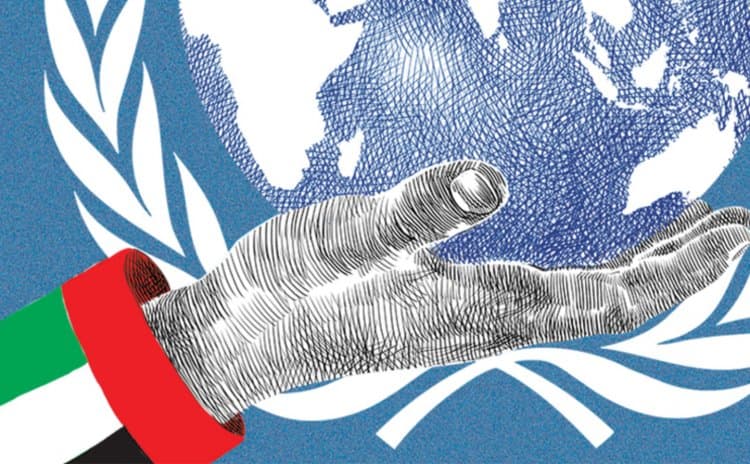
How is UAE leading the global change in Sustainable Finance?
On 24th October 2022, UAE’s commitment towards COP-28 goals was reinforced when Dubai International Financial Centre (DIFC), the leading global financial center in the Middle East, Africa, and South Asia (MEASA) region, announced a year-long partnership with the Global Ethical Finance Initiative (GEFI).
It is striking to note that a hub like DIFC, dependent on financial factors, is looking forward to non-financial factors as a part of its analysis process to identify material risks and growth opportunities.
The ETAF: A step in climate finance growth
The Energy Transition Accelerator Financing (ETAF) platform, launched by the International Renewable Energy Agency (IRENA) and the UAE, is aimed to secure $1 billion to fund 1.5 gigawatts of new renewable energy by 2030, with a major focus on developing economies. Arguably, this may not resolve the energy transition of UAE from a 100% gas-dependent extractor by immediately curbing its gas pipes and 30% of GDP but still resolves the implementation of its ambitious National Determined Contributions (NDCs) to meet Paris Agreement targets.
This comes from the consideration that international climate and development objectives cannot be achieved by immediate actions but requires a step-by-step process in which major stakes come from the reallocation of capital towards low-carbon technologies, including renewables.
Achievements of determining climate change growth
- Agriculture Innovation Mission for Climate (AIM) announced that more than $4 billion of increased investment was sourced from 33 countries for climate-smart agriculture solutions, with $1 billion of this committed by the UAE.
- UAE signed up to the Global Methane Pledge, which saw more than 100 countries, including the UAE, committing to slash emissions of methane by 30 per cent by 2030, as well as the deforestation pledge, which committed more than 100 countries to end and reverse deforestation by 2030.
- The Ministry of Energy and Infrastructure in UAE has created a Blueprint-Hydrogen Leadership Roadmap, which contains comprehensive steps to establish the country as a leading exporter of hydrogen by supporting low-carbon industries.
- By the end of the decade, the UAE aims at planting 100 million mangrove trees as part of its second NDC (Nationally determined contribution). NDC was adopted from the Paris Agreement.
- The government also spent $17 billion on helping 27 island nations face the climate change threat. Many projects like solar, wind, and battery storage were initiated here.
Self-Assessment and ESG Policies
In September 2022, Dubai Sustainable Finance Working Group (DSFWG) and Dubai Financial Market (DFM), introduced a self-assessment tool for measuring the maturity of ESG policies and practices in companies. This is in line with the United Nations’ Sustainable Development Goals (SDGs) and the standards of the Global Reporting Initiative (GRI). For sustainable financial growth and long-term investment, environmental, social, and governance (ESG) considerations line a better evaluation for regulators, institutional investors, and asset managers.
Factors such as the use of sustainable resources test the quality of products from an environmental perspective, factors such as human rights, diversity (for example, gender diversity), and consumer protection test social growth, and factors such as management and employee relations of organizations test governance. UAE became the first GCC country to announce a net-zero carbon commitment as ‘the Net Zero by 2050 Strategic Initiative’ to attract investment from global capital markets as investors increasingly seek ESG-compliant investments.
In conclusion, the UAE's ‘challenges are opportunities’ approach has helped the country to create a sustainable future for the coming generations. COP-28 is likely to help UAE share its insights about this approach as well. The UNFCCC decided to host the summit after UAE received unanimous support from the Asia-Pacific group at COP-26 in Glasgow, Scotland in 2021.
For any enquiries or information, contact info@thelawreporters.com or call us on +971 52 644 3004